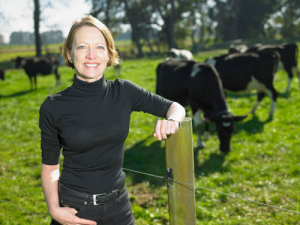By taking nitrogen (N) from the air to make fertiliser, the Haber-Bosch process has been called the greatest invention of the 20th century; without it almost half the world’s population would not be alive today.
The availability of nitrogenous fertiliser removed the key constraint to crop productivity.
That story was broadcast on RadioNZ earlier this year in the series ‘Fifty things that made the modern economy’.
Global agriculture has, however, become steadily more dependent on synthetic nitrogenous compounds. This dependence has been described as a ‘deadly addiction’ because overuse of N leads to losses into waterways and increases in greenhouse gases.
Production versus environment is a global conundrum and American researchers stated this year that identifying what changes can be made to farming operations to reduce N losses while maintaining productivity and profitability is still a challenge. For some countries it will be more of a challenge than others, and NZ could be one of the lucky ones.
At the end of May, the UK Defra (Department for Environment, Food and Rural Affairs) published ‘Agriculture in the United Kingdom 2017’. The report shows that the N balance (the difference between N coming into the UK and that leaving it) was 90.7kg/ha, an increase of 4%. Despite no change in inputs, yields had decreased, so more N was assumed lost.
The N balance in NZ reported widely last year was 49kg/ha. While it is true that it had increased in the last decade (to 2009 in the OECD Environmental Performance Review 2017), it is also true that the countries praised for reducing their impact, for example the Netherlands, had reached about 204kg/ha (down from 302 kg/ha in 1998-2000). The UK was 97 (down from 120kg/ha in 1998-2000).
In a different report in February, Defra indicated that in the 2014/15-2016/17 period, 16% of farms made a loss even with ‘support’ (which we term subsidies). Without these payments from the government, 41% of farms would have made a loss.
Further analysis shows that only the top 25% of farms actually made money from farming; the next 25% broke even on farming but made money on the payments; the next 25% lost money on farming which was partially offset by the payments; and the bottom 25% simply lost money.
Across all farm types, 61% of farm business income came from direct payments, with grazing livestock and mixed farms most dependent.
The UK subsidies include direct payments based mostly on area of land, but with a third on ‘Greening’. The EU states that the ‘Greening’ payment “supports action to adopt and maintain farming practices that help meet environment and climate goals as market prices do not reflect the effort involved in providing these public goods”. Permanent grassland (which dominates NZ agriculture) is supported because it helps maintain biodiversity and soil carbon.
Subsidy payments are also for diversification (non-agricultural on or off farm, but using farm resources), and agri-environment. The latter was set up because ‘Greening’ was failing to meet environmental objectives. Agri-environment is paid on an ‘opportunity cost’ or ‘income foregone’ basis, recognising that environmental initiatives might impact on profitability – recognising, in fact, that it is hard to be green when you are in the red.
Discussions are occurring about how the payments in the UK might be phased out. More efficient use of fertiliser, changing the timing and amount, has already been proposed; so has soil testing.
NZ, with its excellent soil testing services, and heightened awareness of losses and what might reduce them using Overseer as a guide, has a part to play in assisting UK farmers, and others, to reduce losses. NZ was mentioned in the US research as having made great progress, including on a catchment basis.
And, of course, the NZ LAWA 2018 report states that more rivers are improving, including in nitrate, than deteriorating. All without subsidies.
Why aren’t more people pointing this out?
• Dr Jacqueline Rowarth has a PhD in soil science and has been analysing agri-environment interaction for several decades.

















